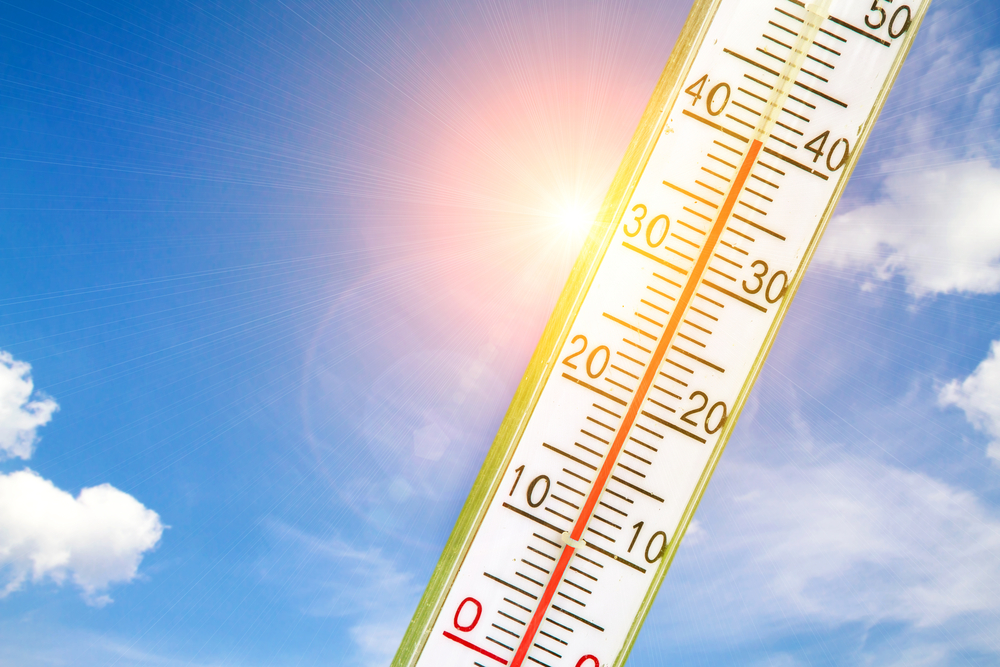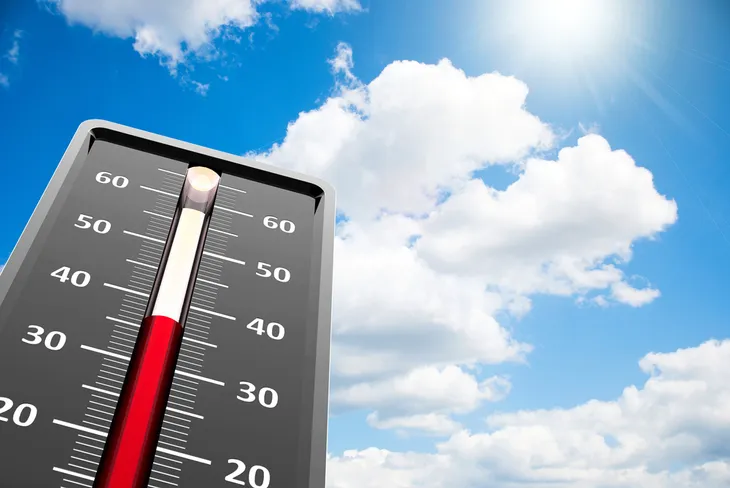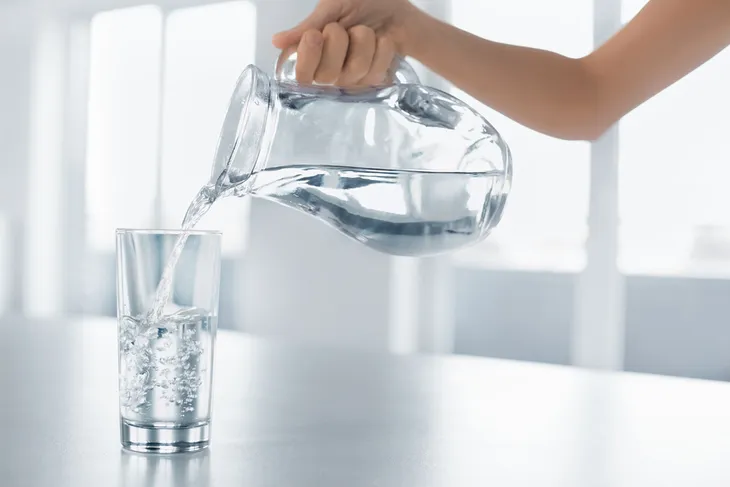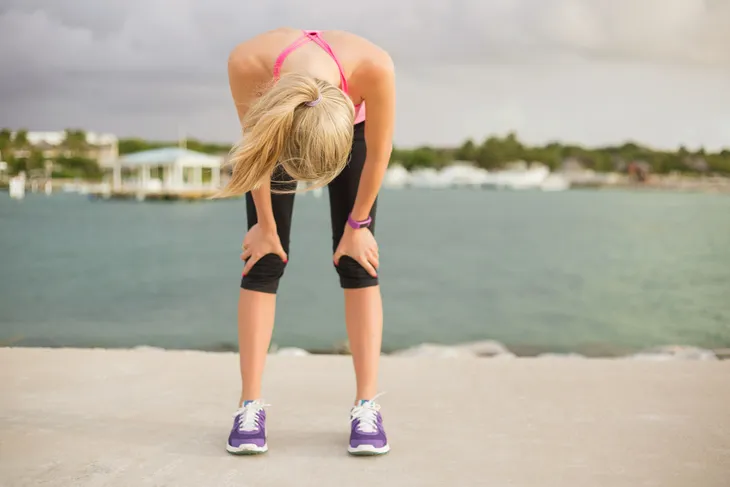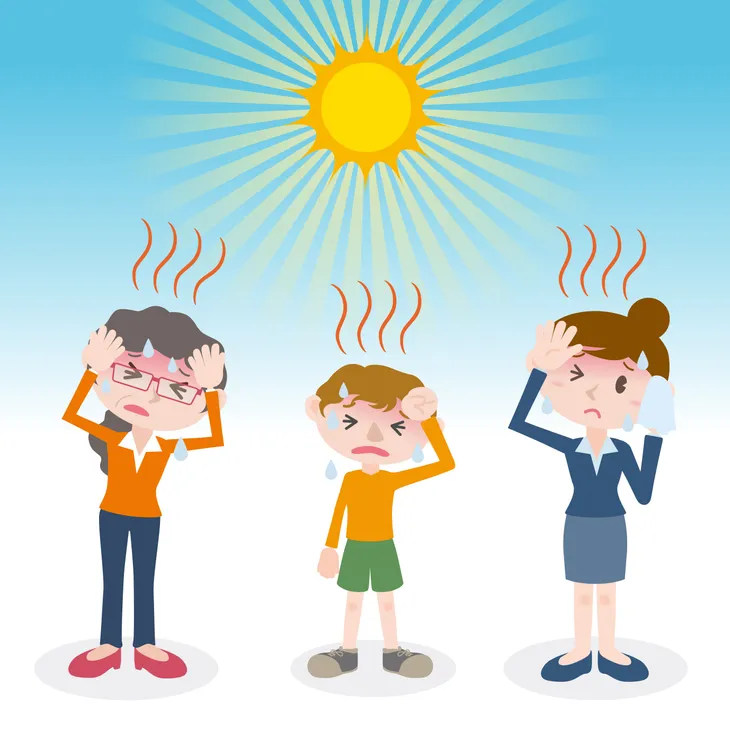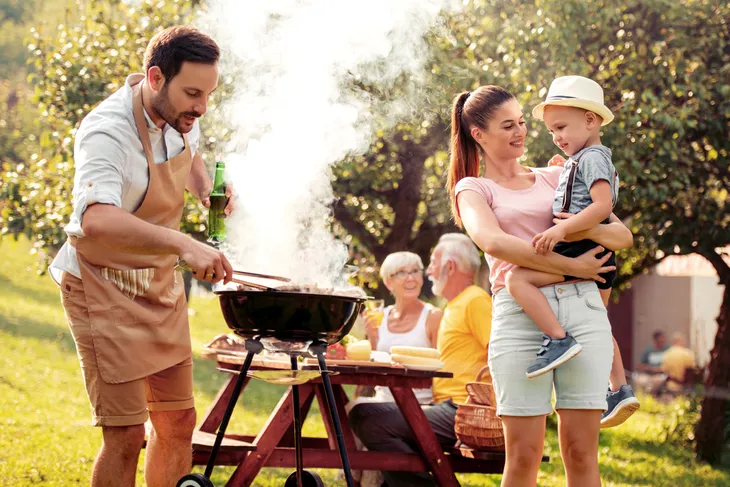Each summer it feels like the days get hotter and hotter. Where we once experienced heatwaves that lasted a few days or perhaps a week, North Americans now seem to feel the brunt of an entire season of remarkably warm weather. For those of us who love the heat and make the most of it by heading to the pool or beach, it’s great. But for everyone else, it can present some significant problems and not just in terms of comfort — in some cases, a prolonged heatwave can be very dangerous from a health perspective.
So, what can you do to keep as cool as possible as the temperature steadily rises in your community? There are a number of simple steps you can take to help keep yourself and your family safe during the year’s hottest days.
Keep an Eye on Weather Reports
One of the most important steps you can take to keep your family safe during the hot summer months is to simply stay informed when it comes to the weather. That means watching or listening to the local news on the television or radio or checking in using websites or smartphone applications. For the most reliable weather forecasts, check out the National Weather Service reports or listen to NOAA Weather Radio.
The advantage of knowing what’s coming is pretty straightforward: you can plan to keep inside at a cool place on those days when the weather will be most fiercely hot. And when the weather isn’t so harsh, you can plan to do things outside with family and friends, like hitting the golf links, playing some tennis, or relaxing by the pool.
Take Care with Children and Pets
Young kids and pets: they have a few things in common, from not using a toilet to making big, big messes. But they also have another commonality: they’re both really vulnerable to extreme heat, especially during the hot summer months. In fact, there are many documented cases of young children and pets losing their lives because adults didn’t take enough care of them during this time of year.
What can you do to protect your kids and pets? Avoid leaving them in enclosed vehicles on hot summer days. Avoid locking them in small rooms without access to air conditioning or, at the very least, a fan to circulate air. And keep an eye on them as much as possible: monitor their breathing and general behavior to make sure they’re as comfortable as possible.
Keep Hydrated
Staying hydrated by drinking water — and, in some cases, sports drinks, low-sugar (or all-natural) fruit juice, and fresh fruit and vegetable smoothies — can make a big difference in how you and your family respond to an oppressive heatwave. It’s important that you and your loved ones have constant access to fresh, clean water that’s ideally, nice and cold.
Although sports drinks, juice, and smoothies are okay to drink, water really is the primary beverage in the fight to stay hydrated. The key is making sure that the water available to you, whether it’s through a refrigerator or tap, is clean and safe to drink. Make sure the filter on your fridge is clean and replace it regularly. And check with your local city hall or community leadership council to ensure your tap water is safe to drink.
Limit Your Alcohol Consumption
The summer heat isn’t all bad: after all, it means enjoying afternoons by the pool or evenings on rooftop patios with friends and family. Of course, many of those lovely social events are enjoyed with alcoholic beverages, from a cold beer to a chilly daiquiri. And there’s nothing wrong with enjoying a refreshingly cold alcoholic drink on a hot day.
But drinking to excess can become an even more significant problem during the hot days of summer than other times of the year. That’s because alcohol dehydrates the body, making you feel thirsty even when you’re consuming fluids. If you’re recovering from a night of drinking, you’re going to have even more difficulty staying energetic and alert than usual and you may have a hard time carrying out even relatively simple physical activities. For that reason, consider cutting back your alcohol consumption when the weather heats up.
Cut Back on Caffeine
Coffee is one of the world’s most popular beverages — in many cases, it’s actually far more popular than soda, juice, beer, wine, and even water. And while many people genuinely enjoy the taste of coffee — especially one that’s been made with love and care — for most, the major benefit is the caffeine found inside it. This simple, highly accessible drug has the power to help us stay energized even when we’re bored or haven’t got enough sleep. Of course, caffeine is in more than coffee — it can also be found in tea, soda, and energy drinks.
But the warm weather presents a problem for frequent caffeine consumers. The hot temperatures require that we stay hydrated and failing to do so can leave us lethargic and, in some cases, in danger of suffering from the health consequences of dehydration. Problem is, caffeine, like alcohol, dehydrates the body, essentially counteracting the good work done by water. So, try to cut back on your consumption of coffee, tea, soda, and other caffeinated beverages while drinking more water.
Eat More Small Meals
If you’ve been following popular nutritional advice at all in recent years, you’ve probably heard that it’s considered better, from a weight loss and weight maintenance perspective, to eat more smaller meals throughout the day than the standard three large meals we’ve become used to overtime.
Why? Because many smaller meals help keep you energized throughout the day rather than just following those three big meals: breakfast, lunch, and dinner. Additionally, it can help prevent you from overeating, which can make us lethargic and can often make it harder to participate in physical activity. During the hottest days of summer, our bodies struggle to keep up, making us feel more tired than usual. Don’t compound the problem by eating a few big feasts; instead, try having smaller meals as the day progresses.
Wear Comfy Clothing
It’s never a great idea to wear tight, heavy, and uncomfortable clothing but sometimes our personal and especially professional lives demand we make such sacrifices. For many people in a range of professions — like firefighters, police officers, construction workers, and religious leaders — dress that sends a message or serves a practical purpose is an absolute requirement and can’t be avoided.
But that’s not the case for most of us. And during the hot summer months, and especially during the balmiest days of an intense heatwave, it’s really very important to wear light, loose-fitting clothing that maximizes comfort and allows us to move about easily. And if you’ll be in the sun at all, try and avoid dark clothing that will draw special attention from the sun.
Avoid Intense Exercise
This one should be a given but, in so many communities during the hot summer months, is routinely ignored. The result: people young and old suffer from serious heatstroke that, in some cases, can actually lead to death. It’s a shocking situation that helps shine a bright, hot light on our limited understanding of the impact of heat on the human body.
To avoid suffering serious heatstroke and finding yourself in the hospital emergency room, tailor your physical activity to the rising temperatures. Rather than engaging in intense physical exercise, like playing football, hockey, soccer, or going for a long run, focus instead on more moderate activities, like cycling, swimming, or just going for a walk. Enjoy the break from these intense exercises while you can and remember that you’ll be able to return to them when the weather cools off again.
Stay Inside
If you’ve grown up loving movies, television, and video games, chances are you’ve had parents, grandparents, baby-sitters, teachers, and coaches pester you to spend less time huddled inside in front of a screen and more time outside in the fresh air. And that’s hardly a bad idea, unless, of course, your community is experiencing a heatwave in the midst of summer.
During these days, it’s best to avoid going outside, particularly to engage in intense physical activities like running or playing sports, and instead stay inside, where it’s usually much cooler. Take this time to enjoy the newest and best indoor activities and if you absolutely must get exercise, take to the treadmill or do some push-ups.
Take Your Time
If you live in a busy city, you know a lot about the rush-rush-rush lifestyle that demands one move as quickly as possible from morning to night. Even for those who work behind a desk, the goal is often to complete as many tasks as possible while balancing a family, exercise regimen, etc. And that’s not to say that the farmers of the world have any time to slow down, either.
But a heatwave demands that we slow down and take our time, both physically and mentally. Failing to do so can have serious consequences, like suffering from heatstroke or just becoming so dehydrated and exhausted that it becomes impossible to keep up. So, take this time to slow down, smell the roses, and avoid falling over from heat exhaustion.
Buddy Up
This list has at least one common theme: staying comfortable and avoiding strenuous activity during the hottest days of the summer. But that isn’t always possible, particularly for people who depend on an active, outdoor lifestyle. Take, for example, a construction worker — they can’t simply say no to a boss who tells them to work outside, especially during the year’s busiest time for building projects.
You can help minimize the risk this poses by ensuring you’re not alone while working outside in the hot weather. This isn’t a huge problem for most construction workers, but contractors for small companies may find themselves in this position a lot. Try to avoid it on the year’s hottest days, as it could have severe health consequences if you succumb to the heat.
Keep Tabs on Loved Ones
The good news about today’s progressively hotter climate is that most of us can usually manage to get inside buildings that have air conditioning. But that’s not always the case and there are still many North Americans who don’t have access to even small air conditioning units, like those that fit in the average bedroom window.
If you know someone in this challenging situation, be sure to keep tabs on them to ensure they’re managing the heat satisfactorily. This is especially important for older adults, who may have health issues that prevent them from managing the heat well or getting to cooler places.
